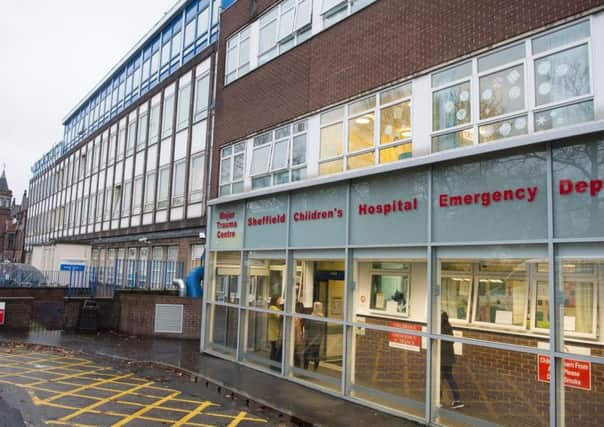Sheffield medics hail '˜biggest advance for 100 years' in saddest surgery


The autopsy, which which minimises the surgical intervention in youngsters’ bodies has been developed at Sheffield Children’s Hospital, where counsellors and charity backers believe it will make a huge difference at “the most horrific moment any parent could ever face”.
Consultant pathologist Dr Marta Cohen, who led the research team with Dr Chitra Sethuraman, said it could be used in two-thirds of cases where autopsy is required, although it is not yet suitable for forensic post-mortem examinations.
Advertisement
Hide AdAdvertisement
Hide AdDr Cohen said it could be “the biggest step forward in pathology for a century”.
She said: “An autopsy is a legal requirement in some cases, so families don’t have a choice. Some want answers, but others don’t like the idea of an invasive process. This makes it easier for them when the decision is out of their hands, as we can give them this option.”
Dr Cohen said that unlike in medical areas such as genetics, where there has been an explosion of techniques in recent years, pathology has remained static.
“The autopsy is the same now as it was 100 years ago,” she said. “Minimally invasive autopsy is the big step that pathology has needed.
Advertisement
Hide AdAdvertisement
Hide Ad“Using molecular analysis through minimal invasion and MRI is the future of pathology. The technique can be used in most cases, although not currently for forensic autopsy or in the case of heart or brain malformation.”
Sheila McGovern, bereavement counsellor at the hospital, said parents almost always want as much information as possible about why their child died and having this information helps them cope.
But, she said, they are in a terrible dilemma because the prospect of a conventional autopsy, which would answer the questions they have, is often horrifying.
She said: “I think anything that could just lessen the pain a little bit for parents in the most distressing situation imaginable is a good thing.
Advertisement
Hide AdAdvertisement
Hide Ad“If the examination can be a little bit more gentle, that is really going to give parents some comfort.”
The research, carried out by Dr Cohen with Dr Sethuraman, Dr Elspeth Whitby, Sean Marven and Richard Lindley, was funded by The Children’s Hospital Charity.
Dr Cohen presented her findings to the Society of Paediatric Pathology in Seattle last year and is now preparing a paper for publication.
She said the research was only possible through the backing of The Children’s Hospital Charity, which funds up to £250,000 of research every year.
Advertisement
Hide AdAdvertisement
Hide AdCharity director David Vernon-Edwards said: “These findings can make the most horrific moment any parent could ever face that much more bearable.
“Thanks to the generosity of our supporters, Dr Cohen and her team have made the first step in giving families a choice about how their child’s death is investigated.”